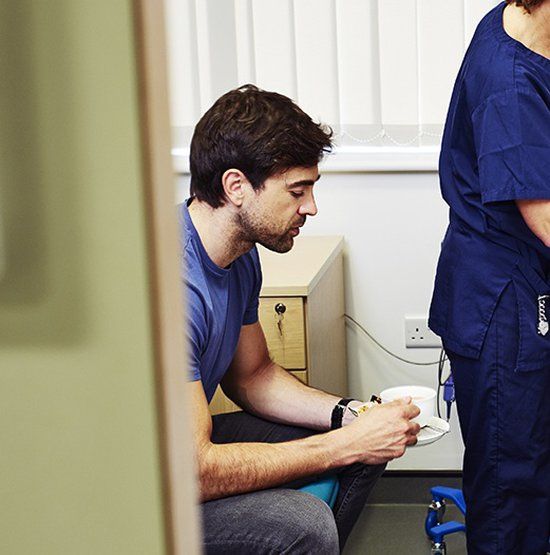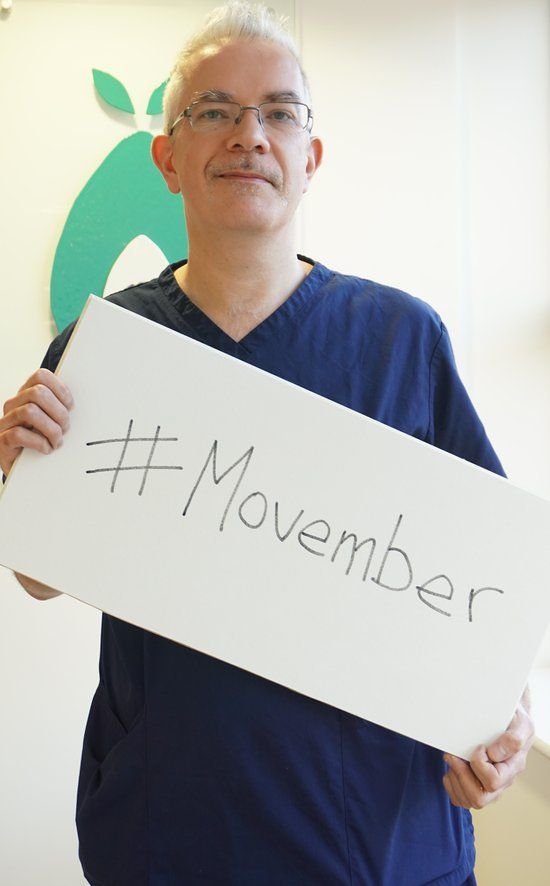
September is Urology Awareness Month, created by London-based charity The Urology Foundation to raise awareness of urological issues and the stigma that can be associated with many of its conditions.
Urology applies to diseases of the kidney and urinary tract such as bladder or prostate cancer – but also to problems with the male reproductive system, including male infertility and testicular cancer.
It’s why if you have fertility problems as a man, you’ll often see a Consultant Urologist. At Manchester Fertility, Dr Steve Bromage and Dr Muhammad Akhtar are our male fertility specialists.
Dr Bromage is a Consultant Urological Surgeon, performing intricate procedures and planning treatment to help infertile men have a baby using their own sperm.
Dr Akhtar is a Consultant Gynaecologist specialising in male infertility, male reproductive health and andrology.
Male infertility: Urology conditions
Male infertility can be caused by issues such as:
- Sperm problems – low sperm count, poor mobility, abnormal shape
- Medical treatment such as chemotherapy, that has affected sperm production
- Retrograde Ejaculation – where the sperm isn’t actually ejaculated but goes back into the bladder
- Blockages in the tubes carrying sperm, which may be caused by STIs
- Failed vasectomy reversal
The good news is that in many cases, male infertility is treatable and can be overcome with the right tailored fertility treatment.
Male infertility treatments
The treatment you’re offered depends on your diagnosis. In most instances, a treatment called ICSI is used for cases of male infertility. ICSI is a refinement of IVF. Instead of sperm and egg being mixed together, ICSI takes a single healthy sperm from your sample and directly injects it into your partner’s egg to fertilise it.
This technique offers a solution for many issues such as low sperm count, poor sperm mobility or shape. ICSI is also used if your fertility tests show a high level of DNA damage in your sperm, which can be a hidden cause of unexplained infertility and miscarriage.
Surgical solutions for male infertility
In more severe cases, surgery may be needed to retrieve viable sperm for use in an ICSI cycle. Surgical Sperm Retrieval (SSR) would usually be advised if you have no sperm in your sample, known as azoospermia, an extremely low sperm count or may be used following chemotherapy or surgery such as prostate gland removal.
At Manchester Fertility we only use the most effective methods of Surgical Sperm Retrieval, such as MESA (Micro-Epididymal Sperm Aspiration), PESA (Percutaneous Epididymal Sperm Aspiration), TeSE (Testicular Sperm Extraction) or Micro-dissection TeSE.
Your fertility consultant will identify which method is best for you and gives the greatest chance of successful sperm retrieval, depending on your diagnosis.
SSR is usually carried out as a day-case procedure, and depending on the technique either under local or general anaesthetic. Any retrieved sperm is usually frozen so we can assess its quality and viability, before it’s used in an ICSI cycle.
Using donor sperm
Donor sperm gives men with severe infertility the chance to still be a father. At Manchester Fertility we only offer sperm from UK-based, young, healthy donors with proven fertility, sperm quality and a clear health screen according to strict HFEA standards.
We have no waiting list for our UK donor sperm, and you’ll be given a choice of sperm donors from our sperm bank to help you conceive.
Male fertility help in Manchester and Cheshire
If you’re struggling with your fertility, book in for evaluation and investigation with our male fertility and urology specialists.
You don’t need a GP referral, you can self-refer here or call our Patient Advisors on 0161 300 2737. We’ll perform a thorough fertility analysis and formulate the most appropriate treatment plan for you.
Last updated: 7th September 2017





